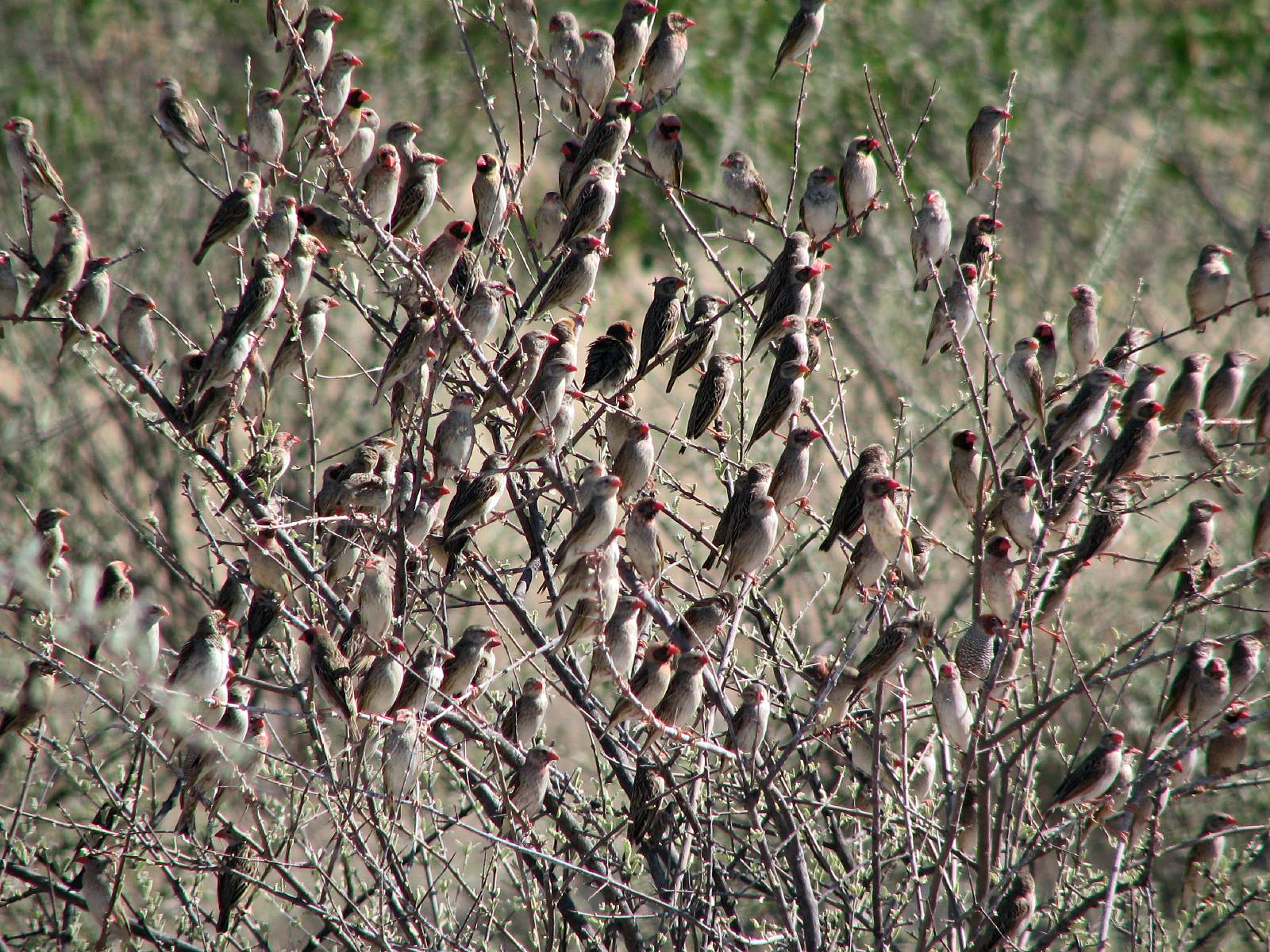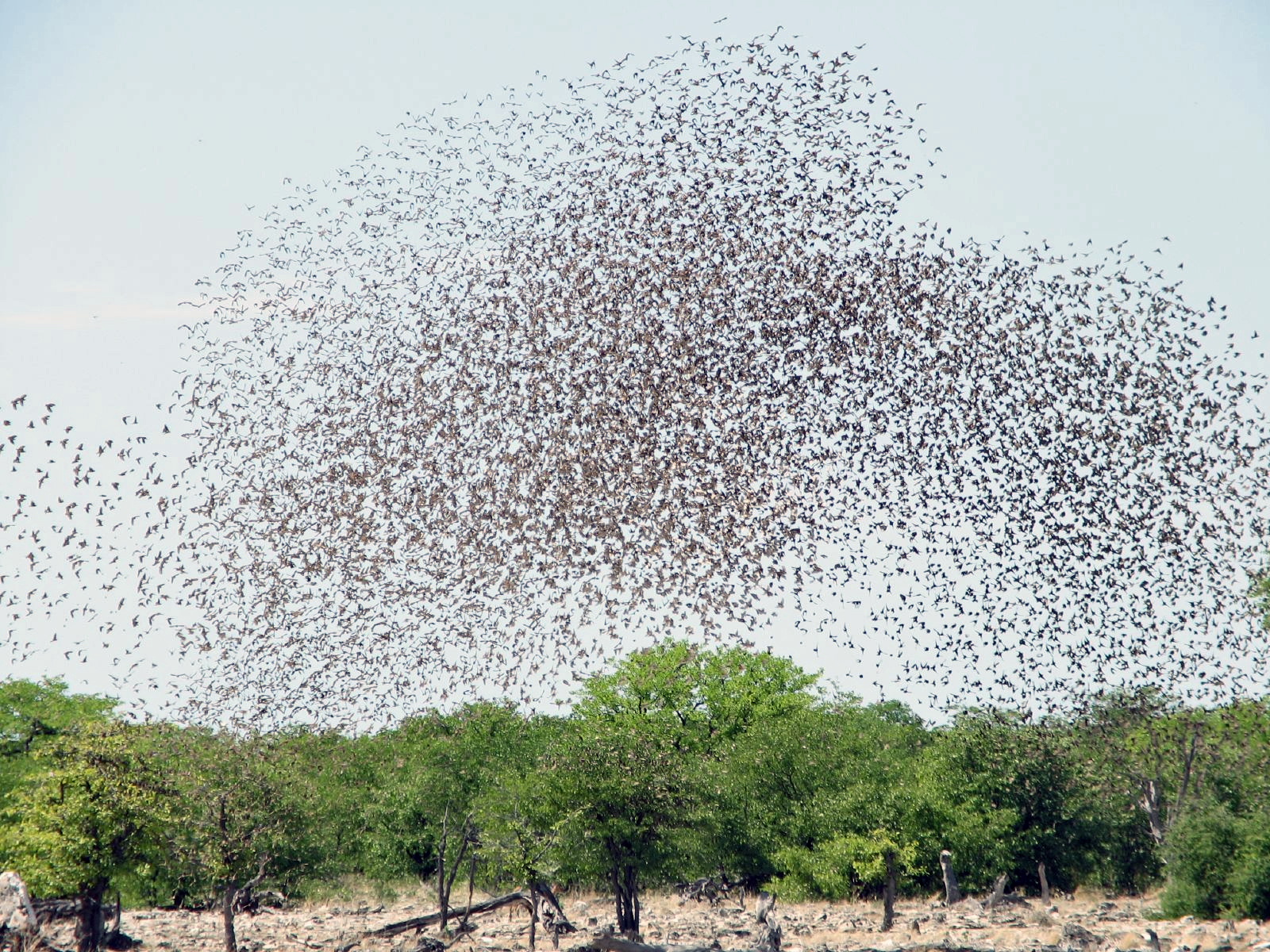One pest, many risks: Quelea birds and the case for safer control
Each year, enormous flocks of red-billed quelea birds sweep across sub-Saharan Africa. Though each bird is small, together they can wipe out entire fields of sorghum, millet, rice and wheat within hours. A single bird can eat up to 10 grams of grain per day - a typical flock of two million birds can consume around 20 tonnes daily. The scale of the damage is immense with crop losses estimated to cost the continent around USD 88.6 million annually.
To manage this threat, many countries have relied on spraying fenthion, a highly hazardous pesticide (HHP), in roosting sites. But fenthion is toxic to humans, animals, and ecosystems - raising serious concerns about the safety and sustainability of this approach.
FAO and the Rotterdam Convention have been working to address these risks. The Rotterdam Convention - jointly hosted by FAO and the United Nations Environment Programme (UNEP), with currently 167 parties - promotes shared responsibility and cooperation in the international trade of certain hazardous chemicals and pesticides.
Together, FAO and the Convention are helping countries move toward safer, more sustainable pest control solutions that protect both harvests and health.


What are the risks?
The use of fenthion poses risks across the One Health spectrum - impacting people, animals, and ecosystems. Communities living near sprayed areas may be exposed through contaminated soil and water, while food safety risks emerge when birds killed during control operations are collected and eaten, potentially carrying chemical residues.
Beyond human health, fenthion can take a toll on animals and the environment. It can harm beneficial species like birds that feed on plant pests, domestic poultry, and raptors and scavengers such as vultures that consume poisoned carcasses. The effects can ripple across the food chain, disrupting ecosystems and undermining plant and animal health.
Working together for safer solutions
To address these risks, FAO and the Rotterdam Convention have supported countries in identifying and applying safer alternatives for quelea bird control. A 2017 regional workshop in Sudan brought together 11 African countries to assess non-chemical control options and develop strategies for quelea management. In 2018, a national meeting in Tanzania launched a study to monitor fenthion’s impacts on human and environmental health. The study noted risks of water contamination, unsafe pesticide application practices, and harm to non-target species.
From 2018 to 2021, an FAO project in Botswana, Zambia and Zimbabwe strengthened pest management efforts by supporting the registration of 12 biopesticides, safer alternatives, which are now officially authorised for use. The project also established three demonstration plots in Botswana showcasing integrated pest management - a sustainable approach that can reduce reliance on synthetic pesticides. One solution involved using trained falcons to deter quelea birds, an approach that avoids chemical inputs and supports both environmental and human health.
For farmers, these innovations can be transformative. “My damage this year is less than one percent. I cannot farm sorghum without the falcons - it’s just not viable,” said one farmer from Pandamatenga, Botswana.
In addition to fieldwork, FAO trained 77 national plant protection officers - to build countries’ capacities for more responsible and effective pest control. These efforts were complemented by awareness-raising that highlighted the risks of fenthion and promoted safer alternatives through real-world case studies.
Strengthening safeguards through the Rotterdam Convention
Building on years of efforts, a major milestone was reached in May 2025. At the meeting of the Conference of the Parties to the Basel, Rotterdam and Stockholm Conventions (BRS COP), countries agreed to list fenthion in Annex III of the Rotterdam Convention.
With this listing, the Prior Informed Consent (PIC) procedure now applies. That means any country exporting fenthion must first receive formal consent from the importing country - ensuring governments are fully aware of the pesticide’s risks before making decisions. It’s a critical layer of protection for human, animal and environmental health.
As Christine Fuell, Executive Secretary ad interim of the Rotterdam Convention, noted: “Though listing does not constitute a ban, alternatives with a reduced risk are vital to protect human health and the environment, and at the same time help ensure food security.”
FAO, together with the Rotterdam Convention, remains committed in helping countries adopt sustainable solutions that protect agrifood systems and the health of plants, animals, people and the environment.
